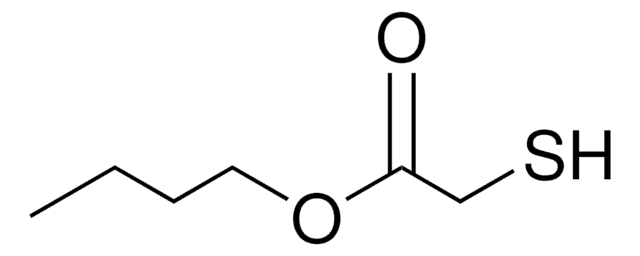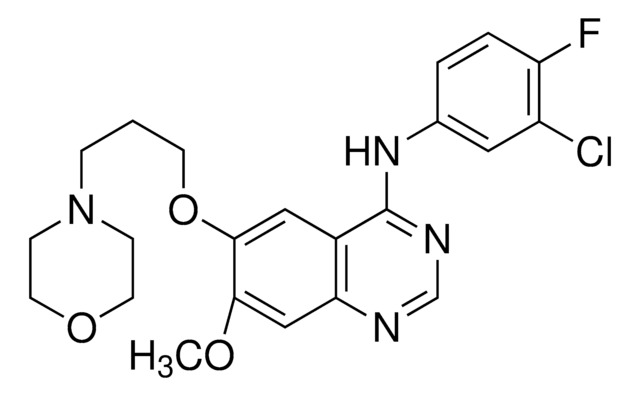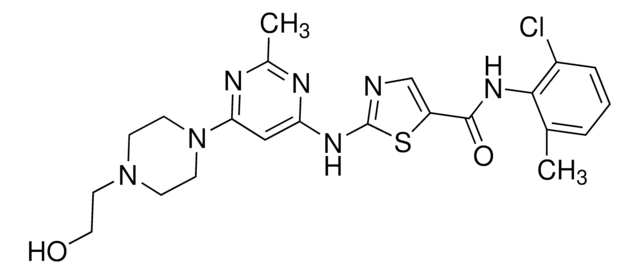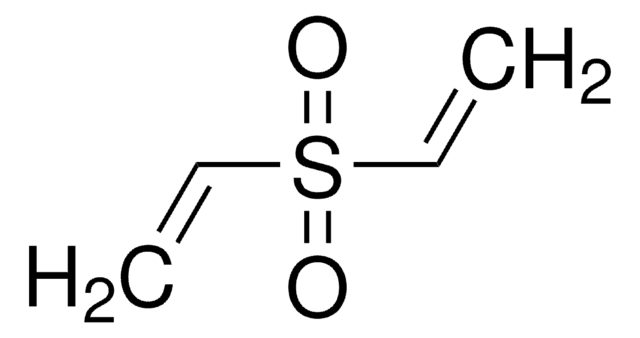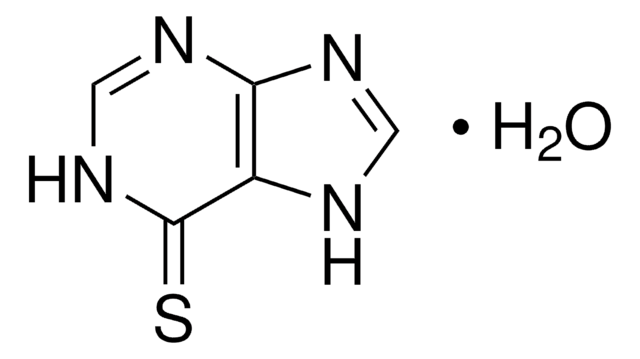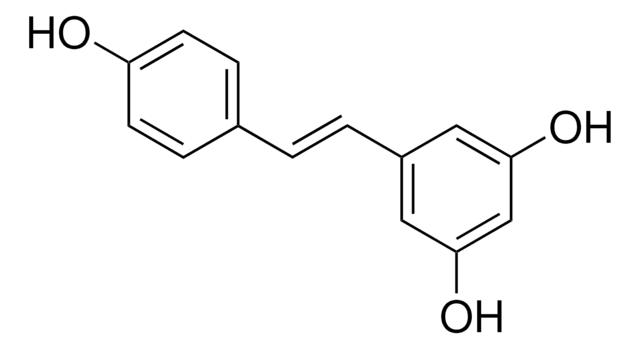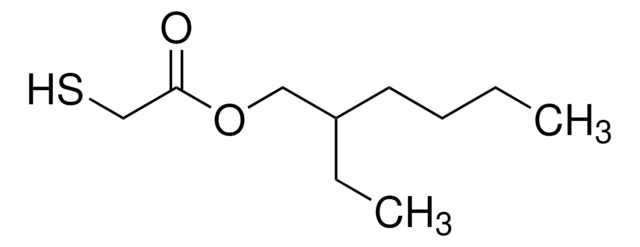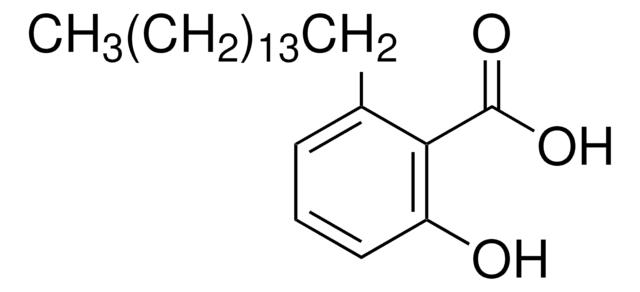SML2869
Ispinesib
≥98% (HPLC)
Synonyme(s) :
(R)-N-(3-Aminopropyl)-N-[1-(3-benzyl-7-chloro-4-oxo-3,4-dihydroquinazolin-2-yl)-2-methylpropyl]-4-methylbenzamide, CK0238273, N-(3-Aminopropyl)-N-[(1R)-1-[7-chloro-3,4-dihydro-4-oxo-3-(phenylmethyl)-2-quinazolinyl]-2-methylpropyl]-4-methylbenzamide, SB 715992, SB-715992, SB715992
About This Item
Produits recommandés
Niveau de qualité
Pureté
≥98% (HPLC)
Forme
powder
Activité optique
[α]/D +315 to +375°, c = 0.5 in chloroform-d
Couleur
white to beige
Solubilité
DMSO: 2 mg/mL, clear
Température de stockage
2-8°C
InChI
1S/C30H33ClN4O2/c1-20(2)27(34(17-7-16-32)29(36)23-12-10-21(3)11-13-23)28-33-26-18-24(31)14-15-25(26)30(37)35(28)19-22-8-5-4-6-9-22/h4-6,8-15,18,20,27H,7,16-17,19,32H2,1-3H3/t27-/m1/s1
Clé InChI
QJZRFPJCWMNVAV-HHHXNRCGSA-N
Actions biochimiques/physiologiques
Mention d'avertissement
Danger
Mentions de danger
Conseils de prudence
Classification des risques
Acute Tox. 2 Inhalation - Acute Tox. 2 Oral - Muta. 2
Code de la classe de stockage
6.1A - Combustible acute toxic Cat. 1 and 2 / very toxic hazardous materials
Classe de danger pour l'eau (WGK)
WGK 3
Certificats d'analyse (COA)
Recherchez un Certificats d'analyse (COA) en saisissant le numéro de lot du produit. Les numéros de lot figurent sur l'étiquette du produit après les mots "Lot" ou "Batch".
Déjà en possession de ce produit ?
Retrouvez la documentation relative aux produits que vous avez récemment achetés dans la Bibliothèque de documents.
Notre équipe de scientifiques dispose d'une expérience dans tous les secteurs de la recherche, notamment en sciences de la vie, science des matériaux, synthèse chimique, chromatographie, analyse et dans de nombreux autres domaines..
Contacter notre Service technique